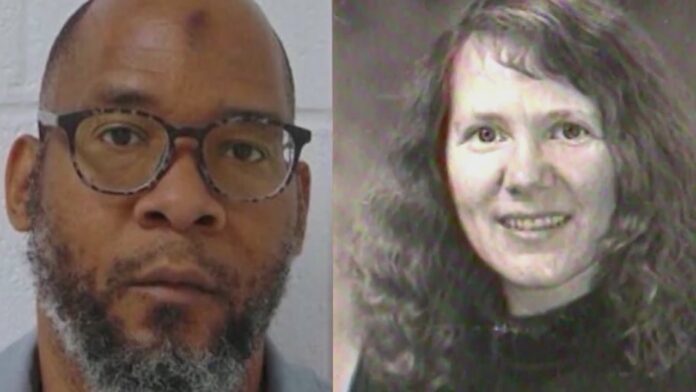The controversial execution stirs public outcry and highlights systemic issues within the capital punishment system
In a chilling turn of events, Missouri executed Marcellus Williams on September 24, 2024, despite significant opposition from the victim’s family and a local prosecutor who questioned the integrity of his conviction. The execution took place at the Bonne Terre state prison, where Williams, 55, faced lethal injection after the U.S. Supreme Court declined to grant a stay. The high court’s decision followed a series of appeals that raised doubts about Williams’ guilt and the evidence used against him.
Williams had long maintained his innocence in the 1998 murder of Felicia Gayle, a former newspaper reporter found stabbed in her home. Over the years, new evidence surfaced, including allegations of jury bias and mishandling of the murder weapon, which the state’s judicial branch acknowledged had been contaminated prior to trial. Despite these revelations, both the Missouri Supreme Court and Governor Mike Parson refused to intervene, citing a lack of credible evidence supporting Williams’ innocence.
As the execution drew near, Williams spent his final hours in prayer and reflection. His last meal included chicken wings and tater tots, and he shared moments with his imam, Jalahii Kacem, before being led to the execution chamber. Witnesses, including his son and attorneys, watched as the lethal injection began at 6:01 PM, with Williams pronounced dead just nine minutes later.
The execution sparked protests outside the prison, where around 100 demonstrators rallied against capital punishment and called for justice. Voices from various advocacy groups condemned the state’s decision, with the NAACP describing the execution as a “lynching of another innocent Black man.” They asserted that Governor Parson had failed to fulfill his duty to protect innocent life.
The St. Louis County Prosecuting Attorney Wesley Bell had joined Williams’ legal team in appealing for a more thorough examination of the evidence. They argued that recent DNA testing suggested the knife used in the murder had been mishandled, undermining the conviction. Bell emphasized that the victim’s family also opposed the execution, advocating instead for life in prison without parole.
However, the Missouri Attorney General’s Office countered that the new DNA findings did not exonerate Williams. They claimed that while the knife had been handled by several individuals, including law enforcement, there remained evidence tying Williams to the crime. Prosecutors pointed to Williams’ confession to his girlfriend and an inmate, as well as the recovery of the victim’s belongings from Williams’ vehicle, to uphold the conviction.
Analysis
Political Perspective: The execution of Marcellus Williams raises significant questions about the role of state officials in capital punishment cases. Governor Mike Parson’s refusal to grant clemency, despite bipartisan concerns, reflects the complexities of political leadership when faced with contentious social issues. This case highlights the tension between the need for finality in the legal system and the moral imperative to ensure justice is served without error. Political leaders must navigate public sentiment and advocacy against capital punishment, which is increasingly scrutinized amid claims of wrongful convictions.
Social Perspective: The execution underscores a societal divide regarding the death penalty. On one side, proponents argue that capital punishment serves as a deterrent and provides justice for victims. Conversely, critics view it as a flawed system prone to irreversible mistakes. Williams’ case has galvanized protests, echoing calls for reform within the criminal justice system. The social discourse surrounding capital punishment now emphasizes the need for transparency and accountability, particularly in light of emerging evidence suggesting wrongful convictions.
Racial Perspective: Williams’ execution brings racial dynamics to the forefront of the capital punishment debate. The NAACP’s comments regarding the execution as a “lynching” resonate deeply in a nation grappling with systemic racism. The historical context of racial bias in jury selection and sentencing amplifies concerns about fairness in capital cases. The acknowledgement of potential racial bias during Williams’ trial raises critical questions about how race influences judicial outcomes and the need for comprehensive reforms to ensure equitable treatment within the legal system.
Gender Perspective: Gender dynamics also play a role in this narrative, particularly in the context of crime and punishment. The victim, Felicia Gayle, was a woman, and her family’s advocacy for a different outcome underscores how gender influences perceptions of victimhood and justice. The response from both Williams’ legal team and the victim’s family reflects broader societal expectations around accountability for violence against women and the complexities involved in achieving justice within a patriarchal system.
Economic Perspective: The economic implications of capital punishment are significant, particularly in a state like Missouri. The costs associated with capital trials, lengthy appeals, and executions can strain state budgets. Advocates for abolishing the death penalty often highlight the financial burden it places on taxpayers, suggesting that resources could be better allocated to social programs or criminal justice reform initiatives. The execution of Williams, amid calls for more thorough investigations and claims of wrongful conviction, further illustrates the inefficiencies within the system, urging policymakers to consider the long-term economic consequences of maintaining capital punishment.
